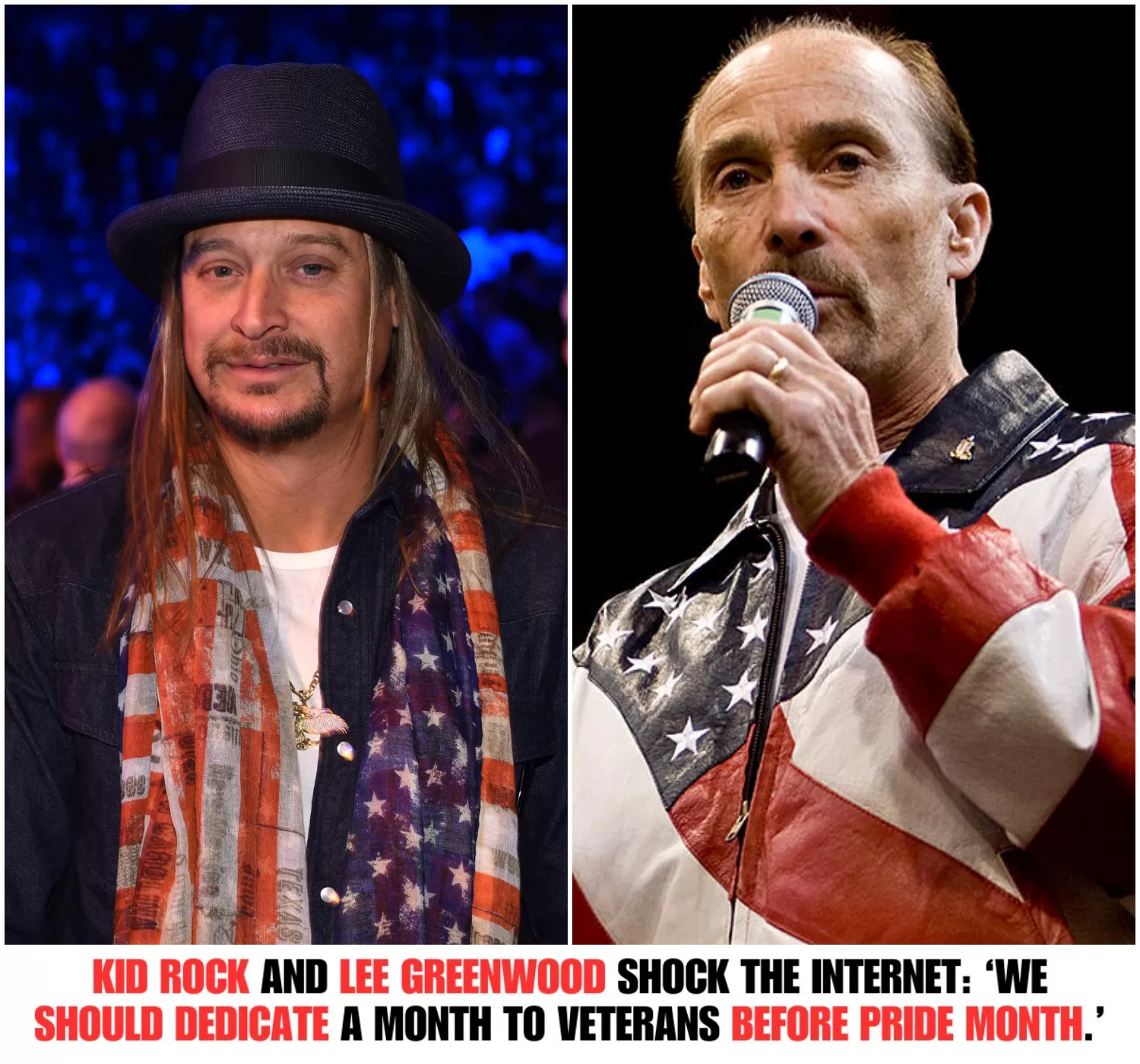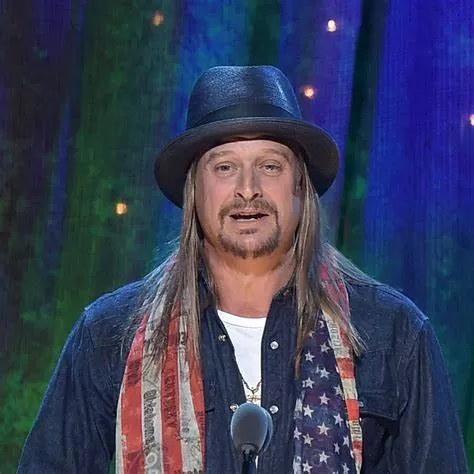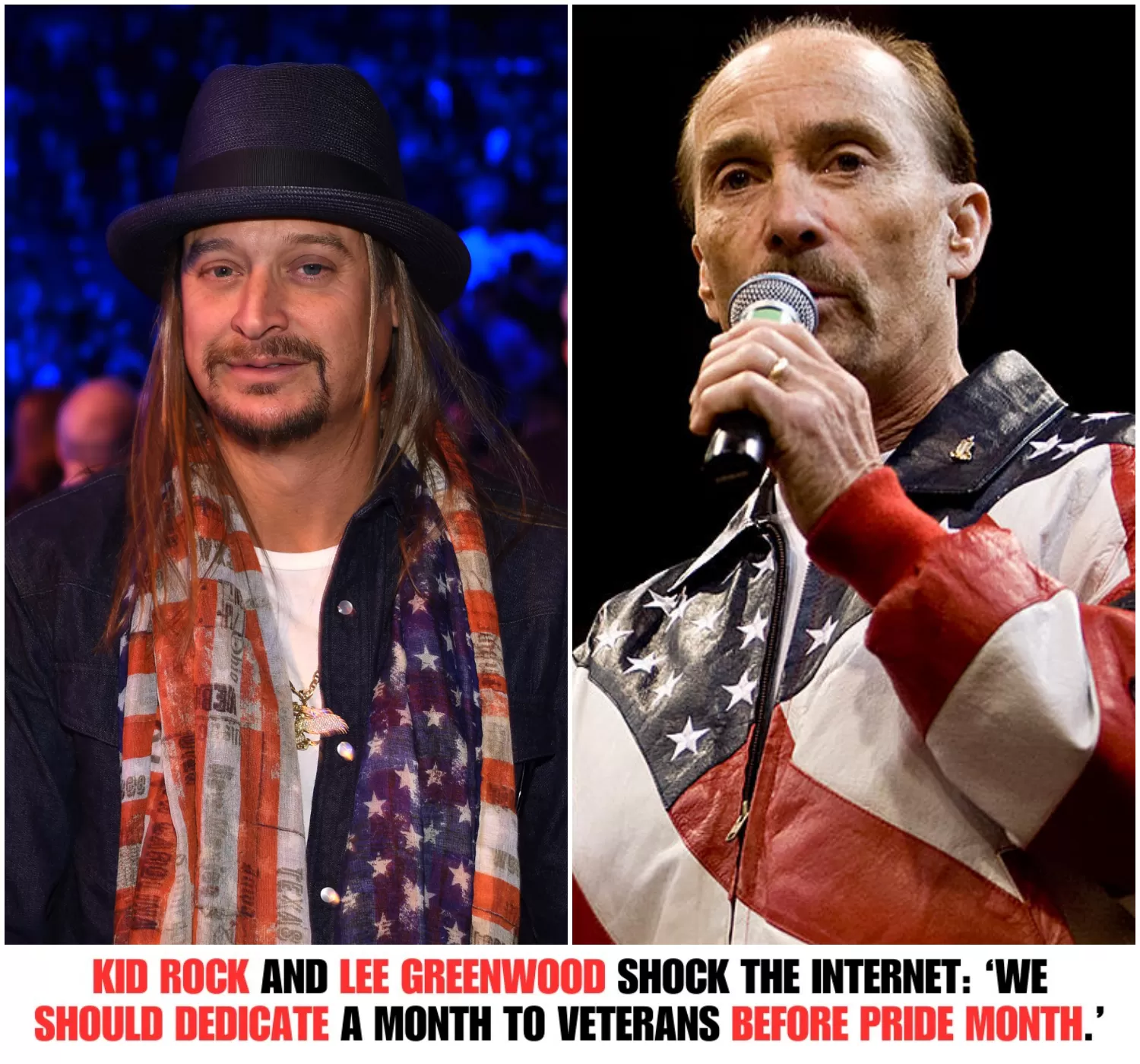Kid Rock and Lee Greenwood, prominent figures in the American music scene, have proposed establishing a dedicated month to honor military veterans, suggesting that it should take precedence over Pride Month. This proposal has sparked discussions about the significance of both observances and the implications of prioritizing one over the other.

The idea stems from their deep respect and admiration for veterans. Greenwood, renowned for his patriotic anthem “God Bless the U.S.A.,” has a long history of supporting veterans through concerts and events honoring their sacrifices. Kid Rock has similarly voiced his support for the military and has participated in various initiatives aimed at helping veterans.
Both artists argue that the nation should recognize the contributions and sacrifices of veterans with a dedicated month, possibly before or instead of Pride Month. They believe this recognition would provide an opportunity to highlight veterans’ stories, struggles, and the challenges they face after service.
However, their suggestion has elicited mixed reactions. Supporters argue that veterans, who risk their lives for the country, deserve a specific period of national recognition. They contend that honoring veterans in this way would draw attention to their ongoing struggles and contributions.

On the other hand, critics express concern that this proposal could undermine the importance of Pride Month, which celebrates the LGBTQ+ community’s achievements and advocates for visibility and equality. They argue that both veterans and the LGBTQ+ community deserve recognition and support without being pitted against one another.
Critics emphasize that the creation of a separate month for veterans should not come at the expense of existing celebrations for marginalized communities. They advocate for a collective approach to recognition, suggesting that both groups can be honored in ways that celebrate their unique contributions to society.
As this debate continues, it highlights broader societal conversations about representation, recognition, and the ways different communities seek to honor their experiences and sacrifices. The discourse invites reflection on how society can uplift various groups while fostering unity rather than division.


